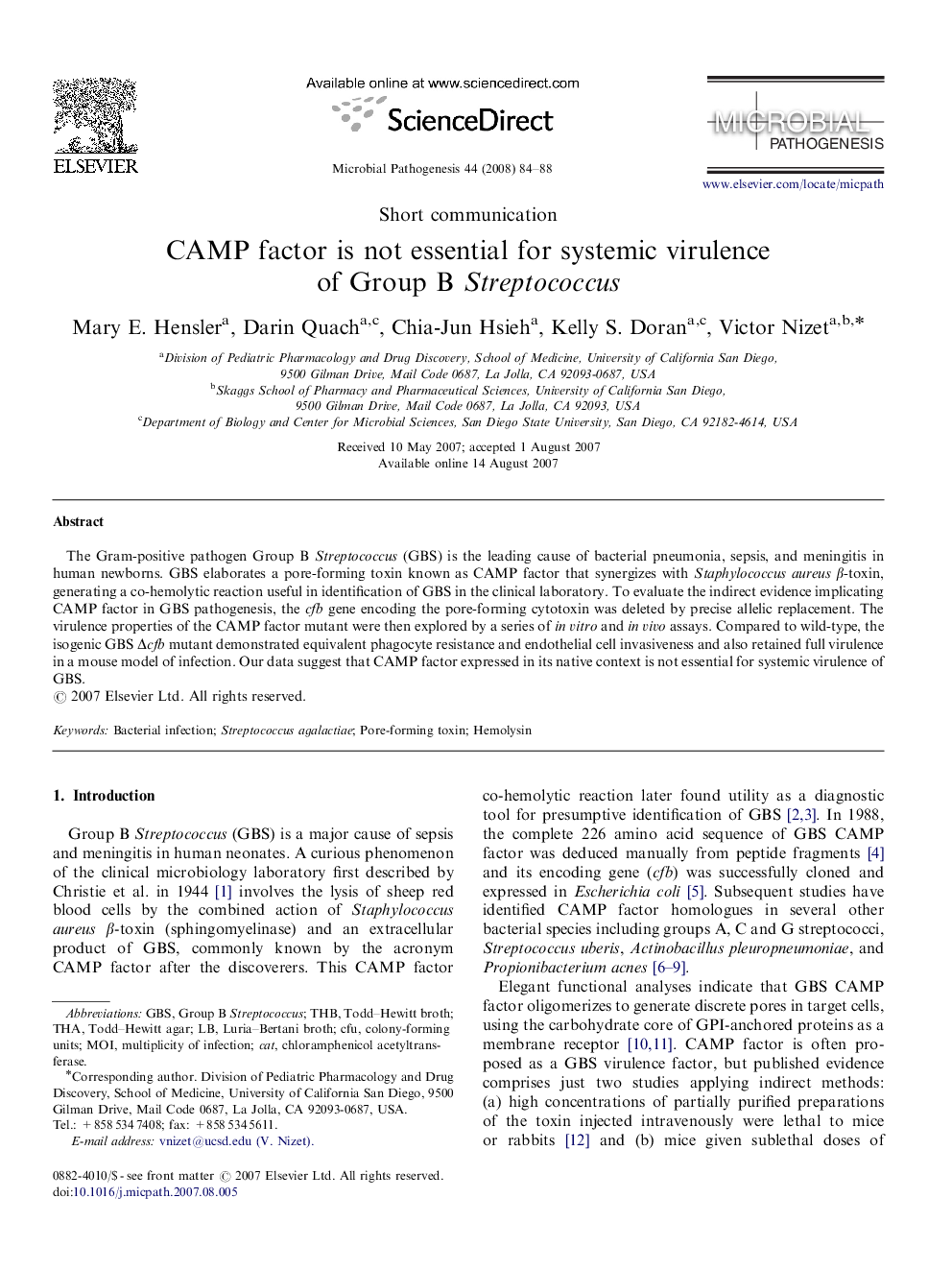| Article ID | Journal | Published Year | Pages | File Type |
|---|---|---|---|---|
| 3417227 | Microbial Pathogenesis | 2008 | 5 Pages |
The Gram-positive pathogen Group B Streptococcus (GBS) is the leading cause of bacterial pneumonia, sepsis, and meningitis in human newborns. GBS elaborates a pore-forming toxin known as CAMP factor that synergizes with Staphylococcus aureus β-toxin, generating a co-hemolytic reaction useful in identification of GBS in the clinical laboratory. To evaluate the indirect evidence implicating CAMP factor in GBS pathogenesis, the cfb gene encoding the pore-forming cytotoxin was deleted by precise allelic replacement. The virulence properties of the CAMP factor mutant were then explored by a series of in vitro and in vivo assays. Compared to wild-type, the isogenic GBS Δcfb mutant demonstrated equivalent phagocyte resistance and endothelial cell invasiveness and also retained full virulence in a mouse model of infection. Our data suggest that CAMP factor expressed in its native context is not essential for systemic virulence of GBS.
